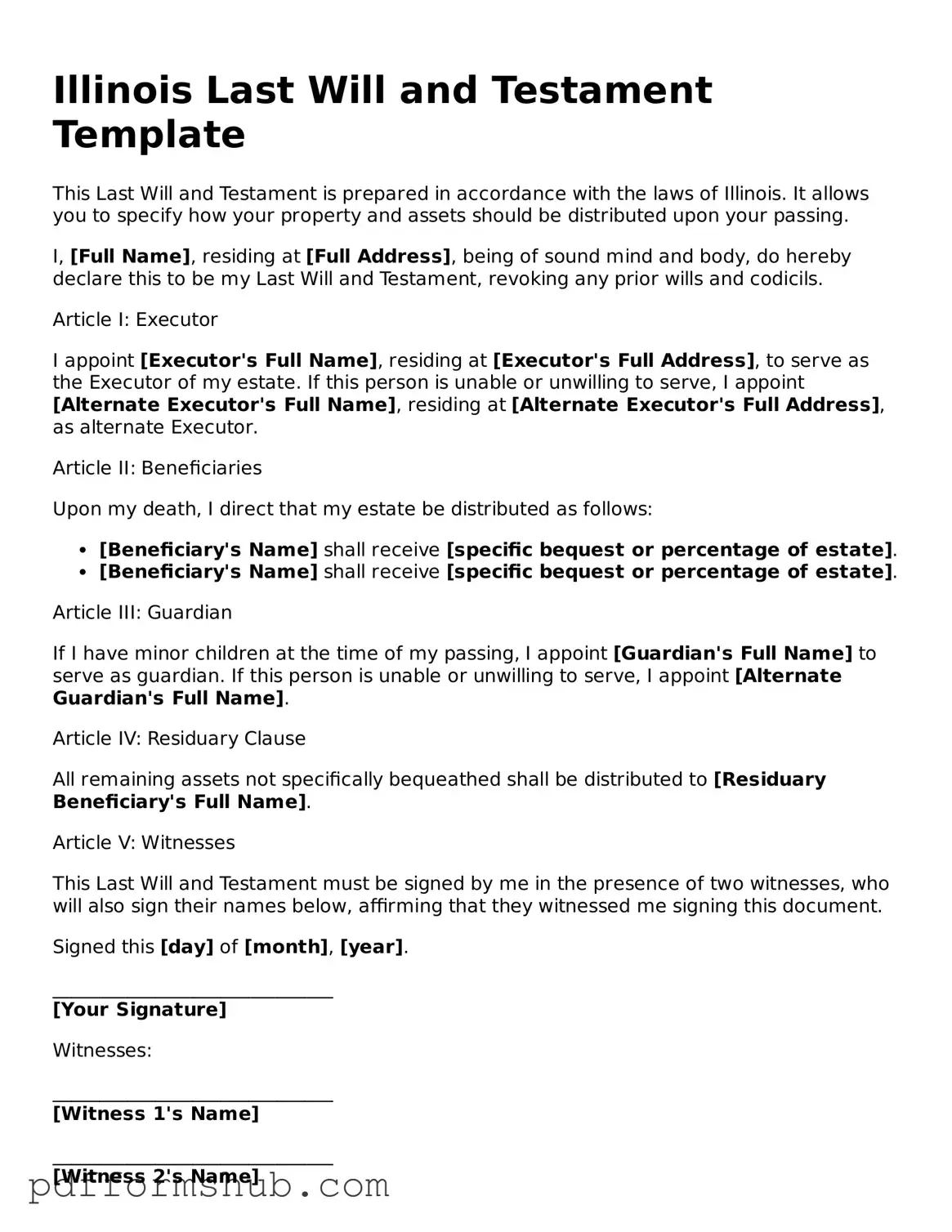Attorney-Verified Last Will and Testament Form for Illinois State
A Last Will and Testament is a legal document that outlines how a person's assets and affairs should be handled after their passing. In Illinois, this form serves as a crucial tool for ensuring that your wishes are honored and your loved ones are taken care of. To begin the process of securing your legacy, consider filling out the form by clicking the button below.
Customize Form

Attorney-Verified Last Will and Testament Form for Illinois State
Customize Form

Customize Form
or
Free PDF Form
Short deadline? Complete this form now
Complete Last Will and Testament online without printing hassles.